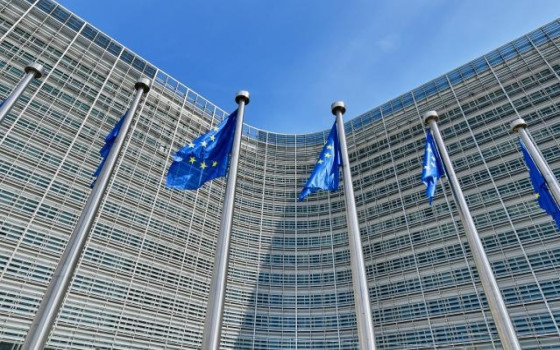
The European Union: The Foreign Support Regulation comes into effect to address distortions resulting from external subsidies and guarantees equal opportunities for all companies

- Europe and Arabs
- Sunday , 15 January 2023 18:9 PM GMT
Brussels: Europe and the Arabs
The European Union has announced that the Foreign Support Regulation ("FSR") has entered into force. A European statement issued in Brussels over the weekend said that this new set of rules to address distortions caused by foreign subsidies would allow the EU to remain open to trade and investment, while ensuring a level playing field for all businesses operating in the single market.
The regulation was proposed by the Commission in May 2021 and approved by the European Parliament and the Council in record time, in June 2022.
The new rules on distorting foreign subsidies
The FSS applies to all economic activities in the European Union: it covers concentrations (mergers and acquisitions), public procurement actions and all other market conditions. The new rules give the Commission the power to investigate financial contributions made by non-EU states to companies engaged in economic activity in the EU, and to remedy their distorting effects, if necessary.
The FSS consists of three instruments, which will be enforced by the Commission:
Obligation for companies to notify the Commission of concentrations involving a financial contribution by a non-EU government where (i) the acquirer, an merging party or a joint venture generates an EU turnover of at least €500 million and (ii) a foreign financial contribution involved not less than 50 million euros;
the obligation of companies to notify the Commission of participation in public procurement procedures, where (i) the estimated contract value is not less than €250 million and (ii) the foreign financial contribution involved is not less than €4 million per non-EU country; The Authority may prevent the awarding of contracts in such procedures to companies benefiting from distorted subsidies.
For all other market situations, the committee can launch investigations on its own (ex officio) if it suspects that there may be distorting external support. This includes the possibility of ordering customized notifications for public procurement actions and smaller concentrations.
Investigative powers and procedures
The reported concentration cannot be completed and the public procurement contract cannot be awarded to the bidder who was investigated during the investigation by the committee. In case of breach of this obligation, the Authority can impose fines that may amount to 10% of the company’s total annual gross sales. The commission can also prohibit the completion of a subsidized concentration or the award of a public procurement contract to a subsidized bidder.
The Financial Services Regime gives the Commission a broad range of investigative powers to collect necessary information, including: (i) sending information requests to companies; (2) Carrying out fact-finding missions inside and outside the Federation. and (iii) initiating market investigations into specific sectors or types of subsidies. The Commission may also rely on market information provided by companies, Member States or any natural or legal person or association.
If the authority finds that foreign subsidies exist and distort the unified market, it may balance between the negative effects in terms of distortion and the positive effects of subsidies on the development of subsidized economic activity. If the negative effects outweigh the positive ones, the Commission may impose structural or non-structural reform measures on firms, or accept them as obligations, to address the distortion (for example, selling certain assets or banning certain market behavior).
As a general rule, subsidies of less than €4 million over three years are considered "unlikely" to be distorted while subsidies below the "lower" European country aid thresholds are considered to be undistorted.
In the context of reportable concentrations and public procurement procedures, the Commission can consider foreign subsidies awarded up to three years prior to the transaction. However, the regulation does not apply to concluding concentrations and public procurement started before July 12, 2023.
In all other cases, the committee can consider subsidies granted 10 years in the past. However, the regulation only applies to subsidies granted in the five years prior to July 12, 2023 as these subsidies distort the single market after the start of application.
With its entry into force, the FSR will move into the critical implementation phase and begin filing within six months, from July 12, 2023. From this date, the commission will be able to launch ex-officio investigations. The notification obligation for companies is effective from October 12, 2023.
In the coming weeks, the Commission will present a draft implementing regulation outlining applicable rules and procedures, including forms for notification of concentrations and procedures for public procurement, calculating time limits, access to files and confidentiality of information procedures. Stakeholders will then have 4 weeks to provide feedback on these draft documents before the Implementing Rules are finalized and approved by mid-2023.












No Comments Found